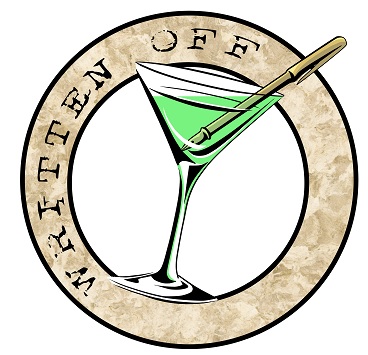It is a common question people ask of writers- how many words did you write? Or how many pages? I struggle with that second question, as it depends on font size, hard back, soft cover, you know. The fixation on the number of words written being equal to the quality of the work seems to have become the standard by which we measure. Is it becoming a bad thing? Is focusing on hitting that magical 50,000-word mark having a negative impact on the quality of writing and even the enjoyment of writing?
I know from my 20+ years of November novel writing experience, that aiming for that elusive word count drove me to slap words on a page. However, upon reflection, I feel that the race for words has me writing too fast, and I am leaving details out that would make the story more awesome. This is something I am working on, writing slower, and surprisingly, it is a hard habit to form. I am so used to writing fast, both with the November experience and writing for clients, that taking a breath and writing slow, is tricky.
So, is writing to word counts, often getting there as fast as you can, a bad idea? Are there better ways to write and track your progress? Let’s have a look
The benefits of focusing on word count
I will start this by saying that working to word counts is not an evil thing that is going to ruin your writing. I suggest that if that is the only goal you’re achieving, then there is more you can be trying to achieve, or something. Moving on…
- Motivation.
 They can be goal posts to aim for, mile markers on the road you’re writing. There are a couple of online sites that use daily word counts as motivation –
They can be goal posts to aim for, mile markers on the road you’re writing. There are a couple of online sites that use daily word counts as motivation –
- 4 the words, which gamifies the writing process. You can take on adventures and fight monsters that have word counts. Hit the word count, defeat the monster, get cool stuff to decorate your avatar. They have you try to write 444 words a day.
- 750 words, is a very simple online platform that encourages 750 words a day.
- Create a habit.
Using the above online packages or simply having a word goal yourself (or a page goal) can help create a habit. I was able to write 500 words, or thereabout, on the train ride into work in the morning. It became a writing habit for me that lasted three or four weeks.
- Something you can measure.
Some people like to be able to measure what they do. Pretty much the only way you can empirically measure your writing is by word count. In the days of newspapers, they’d measure by column inches, but we’re beyond that now, and we don’t measure your creative writing in inches.
- How long it takes to read.
This is a facet of my professional writing career. The number of words you write can indicate how long a person takes to read your work. This helps with metrics such as stickiness on a page. It can help you budget for on-page ads and such.
From The Read Time website:
- 500 words = 3 minutes
- 1000 words- nigh on 5 minutes
- 1500 – 6 minutes
- 2000 words – 8 minutes
This has made me want to write a book or collect stories from friends called- 5-minute reads. A collection of stories that are no more than 1000 words long. Keep an eye out to see if I do this or not.
Drawbacks to using a word count goal
- A hill too far.

If you set a goal of writing 2000 words, and by 1000 you’re struggling, then trying to push yourself that extra thousand words might be too much. This can leave you feeling like a failure, when in fact, you’ve just written 1000 words.
If this happens often, you may start to resent writing and not enjoy it because it’s just you not hitting your goals.
- Quantity over quality.
I feel this one has applied to me. I would race myself to 50,000 words in November, and while I had the bones of a good story, I wasn’t satisfied with it. I would rush my story. It could happen to you, too.
That drive to write as many words as possible could have you producing drivel.
- Just writing filler.
You may just start writing long words, many words, content you don’t need to write, just so you hit your word goal. Sure, you can edit all that out, but that isn’t the point, is it? Writing fluffy words just to fill in a word count is counterintuitive and can lead to a decline in your quality of writing. You want to use the best words you can, not as many as you can.
- What have you actually achieved?
You wrote 2000 words, excellent. What did you achieve? You achieved 2000 words. There is nuance to that, sure, but the quick answer is, the answer. Did you finish a scene? Yes, and then started another. Sure, but did you finish an arc, or write a good love scene, or fight scene?
Sometimes, writing to a word count is all you feel like you’ve achieved. When writing fiction, I feel it is more important that you achieve emotional connection, a great character act, or world building, irrelevant of the words you use.
- Did you need all those words?
Have you ever read a book that was massive and felt like it took a long time for anything to happen, too many words were used to get the action flowing? Readers can tell when you’ve used too many words. While we love a big book with lots of story, if it’s a big book where the story could have been told in half the number of words, the reader can tell. You’ve wasted your reader’s time, and you’ve wasted your time in writing all of those words.
A daily writing habit is the best
It is said in many books about writing that you need to start a daily habit, write every day. This is great advice, but sadly, not even I can write every day. I deliberately try and take Saturdays off from being on the computer writing, since it is my day job and I want to break away from the screen. However, I was told that I could do some handwriting, ye old pen and paper instead, which is a good point.
 Often, when we’re given the advice of writing every day, it is followed by a word count. Write 1000 words a day, write 750 words a day. I would like to argue that you should write for 30 minutes a day, or write for 25 minutes, have a break, and then another 25 minutes. This is the Pomodoro Technique for productivity, and it is what I use in my writing groups.
Often, when we’re given the advice of writing every day, it is followed by a word count. Write 1000 words a day, write 750 words a day. I would like to argue that you should write for 30 minutes a day, or write for 25 minutes, have a break, and then another 25 minutes. This is the Pomodoro Technique for productivity, and it is what I use in my writing groups.
I believe that the more time you invest in a skill, the better you will become at it, hence writing for a set amount of time. Sometimes you might write 500 words of okay stuff, other times it might be 200 words of awesome!
I have also heard that you’re not a good writer until you’ve written your first million words. I’ve written well over a million words in my writing career, but let me tell you, seeing that statement for the first time was scary. It made me feel like the first million words wouldn’t count, so what was the point? That is a lot of work to do, just to get good. And it is a massive hill to stand at the bottom of and look up to.
I believe that writing is not a binary event, where you win if you hit a word count and you don’t win if you miss it. You can have powerful stories in so few words.
Ernest Hemingway wrote- “For sale: baby shoes, never worn.” 6 words, powerful. We don’t know how many hours it took to hone down to those few words, but it was a time thing, not a word count thing that really mattered.
In my writing group, we always start off with a 15-minute drabble writing exercise. A drabble is a story in only 100 words. It is a mental challenge to keep it succinct and yet, with a plot, or something that grabs you.
Writing is a journey to a destination. It can be a short stroll to the corner shop, or an epic journey to a flaming volcano to destroy some jewellery. What should matter more to you as the writer, and to us the reader, is that it is a good story, not that it was seven thousand pages long.
When you have a writing session, ask yourself- did you achieve something cool? Did you set a goal and achieve it, be that writing for ten minutes or an hour, reaching the end of the first chapter, or, yes, writing 1000 words?
If a word count goal gets you motivated, I’m not going to say it’s wrong. It is what motivated me for many years. Just know that it isn’t the only way you can measure writing joy and success. Go write the next scene, go write a fight scene, a love scene, or a conversation between two characters, and let the words tumble forth until you’re satisfied.


